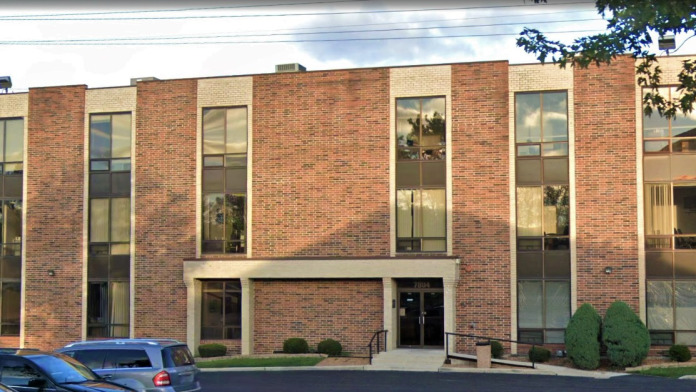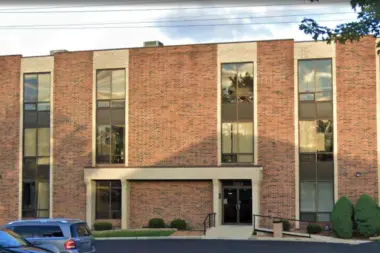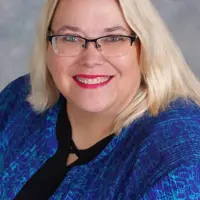About Associates in Professional Counseling
Located in Palos Heights, Illinois, Associates in Professional Counseling offers mental health and addiction services to adults and adolescents. The staff will help you to establish healthier coping strategies, identify unhealthy behavior patterns make positive changes. In addition to treating drug and alcohol addiction, the facility also offers services for process addictions, sexual addictions and eating disorders.
One of the first things that a certified substance abuse specialist will help you with is determining the factors that trigger your addiction. Common triggers for substance use include boredom, stress, relationship issues and anger. Once the trigger has been identified, your counselor will guide you in developing strategies to manage your triggers.
Additional things that may be discussed in counseling sessions include developing lifestyle changes and restoring areas of your life that have been negatively impacted by substance use. Individual and group therapy sessions are available to both individuals struggling with addiction and loved ones who’ve been impacted by a client’s substance abuse.
Palos Heights is just a half hour outside of the city of Chicago. In between your treatment sessions, you can make a quick day trip and see attractions such as Millenium Park and Riverwalk.
APC understands that relapse is common with individuals who are addicted to opioids due to the unpleasantness of the withdrawal process. The therapists on staff are connected with physicians to be able to refer a client for medication. One other thing that stands out to me about this location is that the substance abuse specialists are also trained to treat a variety of process addictions. The facility can receive treatment for addictions to shopping and spending, gambling, internet use and gaming.
Rehab Score
Gallery


Accepted Insurance
Other Forms of Payment
Private insurance refers to any kind of healthcare coverage that isn't from the state or federal government. This includes individual and family plans offered by an employer or purchased from the Insurance Marketplace. Every plan will have different requirements and out of pocket costs so be sure to get the full details before you start treatment.
Self-pay involves paying for treatment out of your own pocket. You can use savings or credit, get a personal loan, or receive help from family and friends to fund your treatment. If you don't have insurance or your insurance plan doesn't cover a specific program, self-pay can help ensure you still get the care you need.
Addiction Treatments
Levels of Care
Outpatient Programs (OP) are for those seeking mental rehab or drug rehab, but who also stay at home every night. The main difference between outpatient treatment (OP) and intensive outpatient treatment (IOP) lies in the amount of hours the patient spends at the facility. Most of the time an outpatient program is designed for someone who has completed an inpatient stay and is looking to continue their growth in recovery. Outpatient is not meant to be the starting point, it is commonly referred to as aftercare.
Intensive Outpatient Programs (IOP) are for those who want or need a very structured treatment program but who also wish to live at home and continue with certain responsibilities (such as work or school). IOP substance abuse treatment programs vary in duration and intensity, and certain outpatient rehab centers will offer individualized treatment programs.
Treatments
The goal of treatment for alcoholism is abstinence. Those with poor social support, poor motivation, or psychiatric disorders tend to relapse within a few years of treatment. For these people, success is measured by longer periods of abstinence, reduced use of alcohol, better health, and improved social functioning. Recovery and Maintenance are usually based on 12 step programs and AA meetings.
Drug rehab in Illinois is designed to help people recover from addiction to a number of substances. The length of each program and its intensity tend to vary, and the plan of care is based on your individual needs.
Opioid rehabs specialize in supporting those recovering from opioid addiction. They treat those suffering from addiction to illegal opioids like heroin, as well as prescription drugs like oxycodone. These centers typically combine both physical as well as mental and emotional support to help stop addiction. Physical support often includes medical detox and subsequent medical support (including medication), and mental support includes in-depth therapy to address the underlying causes of addiction.
Substance rehabs focus on helping individuals recover from substance abuse, including alcohol and drug addiction (both illegal and prescription drugs). They often include the opportunity to engage in both individual as well as group therapy.
Programs
Adult rehab programs include therapies tailored to each client's specific needs, goals, and recovery progress. They are tailored to the specific challenges adult clients may face, including family and work pressures and commitments. From inpatient and residential treatment to various levels of outpatient services, there are many options available. Some facilities also help adults work through co-occurring conditions, like anxiety, that can accompany addiction.
Young adulthood can be an exciting, yet difficult, time of transition. Individuals in their late teens to mid-20s face unique stressors related to school, jobs, families, and social circles, which can lead to a rise in substance use. Rehab centers with dedicated young adult programs will include activities and amenities that cater to this age group, with an emphasis on specialized counseling, peer socialization, and ongoing aftercare.
Clinical Services
Group therapy is any therapeutic work that happens in a group (not one-on-one). There are a number of different group therapy modalities, including support groups, experiential therapy, psycho-education, and more. Group therapy involves treatment as well as processing interaction between group members.
Staff

Troy Westercamp, MA, LCPC
Counselor

Whitney McDaniel, MA, LCPC
Counselor

Hobert R. Ogilvie, MA, LCPC
Counselor

Mark McIntyre, MA, LCPC, CAMF
Counselor

Kevin Huyser, MA, LCPC, CAMF
Counselor

Kristin Mikolite, MA, LCPC, CRADC
Counselor

Laura Wirtz, MSW, LCSW
Counselor

Angela M. Gervacio, MS, LCPC
Counselor
Contact Information
7460 W College Dr
Suite 101
Palos Heights, IL 60463



